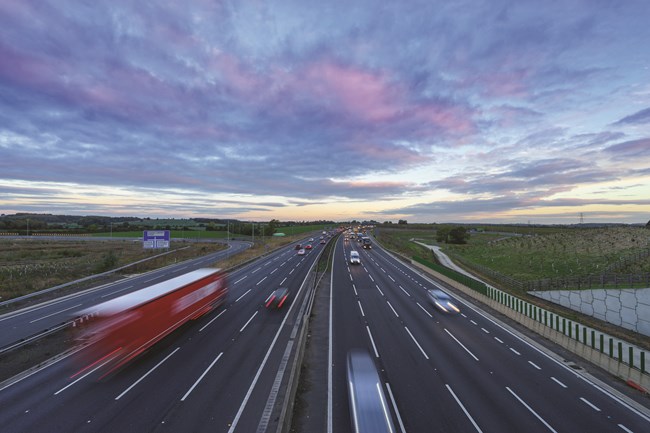We use cookies to ensure that we give you the best experience on our website. If you continue without changing your settings, we will assume that you are happy to receive all cookies on the Business Car website. However, if you would like to, you can change your cookies at any time

The start point for the best source of fleet information |
MPs call for road pricing to replace fuel duty and VED
Date: 04 February 2022 | Author: Sean Keywood

The UK Government should bring in a road pricing scheme, based on miles travelled and vehicle type, to entirely replace fuel duty and VED, according to a report by MPs.
Members of the UK Parliament Transport Committee said the change was needed due to the switch from petrol and diesel to electric vehicles, with new sales of the former set to be banned by the government from 2030.
The committee said the resulting decline in tax revenues from this switch, under the existing system, would mean a £35 billion hole in government finances.
The committee said the proposed new road pricing system should replace fuel duty and VED rather than being added to them, and should be 'revenue neutral', with most paying the same or less than they do currently.
It also said the scheme should be designed to take account of the impact on vulnerable groups and those in the most rural areas, should not undermine targeted increases in active travel and public transport use, and should ensure that any data capture was subject to rigorous governance and oversight to protect privacy.
The committee said the Treasury and Department for Transport should together set up a body to examine the proposal, and recommend a new road charging mechanism by the end of this year.
Transport Committee chair Huw Merriman MP said: "It's time for an honest conversation on motoring taxes. The government's plans to reach net zero by 2050 are ambitious. Zero emission vehicles are part of that plan. However, the resulting loss of two major sources of motor taxation will leave a £35 billion black hole in finances unless the government acts now - that's four per cent of the entire tax-take.
"Only £7 billion of this goes back to the roads; schools and hospitals could be impacted if motorists don't continue to pay.
"We need to talk about road pricing. Innovative technology could deliver a national road-pricing scheme which prices up a journey based on the amount of road, and type of vehicle, used.
"Just like our current motoring taxes but, by using price as a lever, we can offer better prices at less congested times and have technology compare these directly to public transport alternatives.
"By offering choice, we can deliver for the driver and for the environment. Road pricing should not cost motorists more, overall, or undermine progress on active travel."
Calling for work on the scheme to begin without delay, Merriman added: "The situation is urgent. New taxes, which rely on new technology, take years to introduce.
"A national scheme would avoid a confusing and potentially unfair and contradictory patchwork of local schemes but would be impossible to deliver if this patchwork becomes too vast.
"The countdown to net zero has begun. Net zero emissions should not mean zero tax revenue."
Reacting to the report, BVRLA director of corporate affairs Toby Poston said the rental and leasing industry organisation welcomed the call for urgent work on road pricing.
He said: "Road pricing involves a total rethink about the way we tax motorists and incentivise transport behaviour. It is a controversial topic, and one that successive governments have chosen to avoid.
"BVRLA members have set out their road pricing principles, and we are delighted that the committee agrees with so many of them, particularly the need to make any system revenue neutral and think about the needs of essential road users.
"Like the committee, we think the work should start now and the fleet sector is ready to help explore the technologies and policies that will deliver an efficient and effective road pricing system.
"A key role in the implementation of the required technologies sits with multiple government agencies. We need to see them working in close collaboration, receiving additional support in order to meet the challenges of this monumental shift."
Giving his reaction, RAC head of roads policy Nicholas Lyes said: "As more electric vehicles come on to our roads, revenue from fuel duty and vehicle excise duty will decline, so it's inevitable a new system will have to be developed.
"Our research suggests that drivers broadly support the principle of 'the more you drive, the more tax you should pay', with nearly half (45%) saying a 'pay per mile' system would be fairer than the current regime.
"Whatever any new taxation system looks like, the most important thing is that it's simple and fair to drivers of both conventional and electric vehicles. Ministers should also consider ringfencing a sizeable proportion of revenue for reinvestment into our road and transport network.
"The Treasury needs to get moving on this sooner rather than later."











